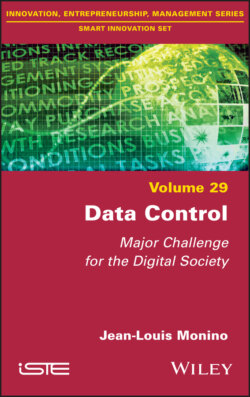Читать книгу Data Control - Jean-Louis Monino - Страница 5
Foreword
ОглавлениеIn the fight against waste, one particular commodity, however eminently precious, is rarely mentioned: data.
While it is not a priority, it is first collected to serve as, or illustrate, a reasoning or an idea. The major challenge of the last two decades has refocused on another field: that of understanding and analysis. Offering a clear report facilitates the management and steering of an activity.
Data processing opens the door to strategic recommendation. Now that the value of data is known, its value can further improve, provided it is operational and ready to use.
The individual, the consumer and the voter are regularly solicited, sometimes against their will, often in ignorance of the risks involved. In the face of the abuses that have been noted, the law has had to be involved.
Before this stage of maturity, “just in case” storage is reassuring without really knowing why. This intuition leads companies to sometimes accumulate incomplete or unorganized data. Ignorance of its purpose has resulted in the accumulation of data in huge volumes, with the only limit being the technical constraints of the moment, the cost per byte.
So far, it has been impossible to use all this data due to lack of time and resources. Therefore, it is not possible to educate the overall population. Using a sample is imperative, with representativeness being a key concept.
Technological progress has made it possible to overcome this constraint of representativeness. The entire dataset is now vulnerable to attack even though the size is discouraging. These masses of data, veritable “assembled pieces”, have whetted the appetite of the greedy known as Big Data, machine learning, artificial intelligence and other “datavores”, reinventing a 2.0 statistic: data science.
At the same time, the proliferation of equipment (tools, applications) has democratized the use of data, making connection and leading to automatic and endemic branches. The variety of media (computers, tablets, smartphones), the explosion of networks and access providers facilitate the exchange, sharing and processing of information. Mobile consumption has become instantaneous.
This continuous feeding creates a new addiction, a demand of a different nature. In order to respond before it becomes obsolete, it is necessary to move quickly, even if it means returning the information to its original role as simple data. In this sense, pre-selections are made, and the data is delivered, sorted and “ready to read”, not necessarily ready to use. The preferences and tastes of the “target” are identified; its supposedly known expectations are identified in relation to its history. Trespassing?
However, the absence of filters or segmentation leads to fears of saturation. The data is ubiquitous despite its limited lifespan. It is refreshed and constantly updated. The required reactivity sometimes weighs on its quality. The corollary concession is the “average” information, which is difficult to exploit. It is against this risk of drowning or submersion that analysts, true lifeguards, fight. Their responsibilities are cleaning, reducing and synthesizing data; detailing or refocusing it if necessary; and using it in the delegated question. At the heart of the process, this human presence guarantees the surpassing of a simple mechanical treatment and therefore the creation of value. The mission of the latter consists, after all the stages of data processing, of restoring the true dimension of the data while making it profitable.
Here, Professor Monino's book brings the main tools that are indispensable to his mission, which, in the course of time, will become more and more indispensable. Unfortunately, not all companies have the necessary resources (time, budget, analyst) to extract or exploit this wealth. However, the use of specialists such as E2S-Conseils allows us to make the most of this information to help companies develop and flourish.
I hope that you enjoy reading and learning from this book.
Philippe RIBIERE
Chief Executive Officer
E2S-Conseils
